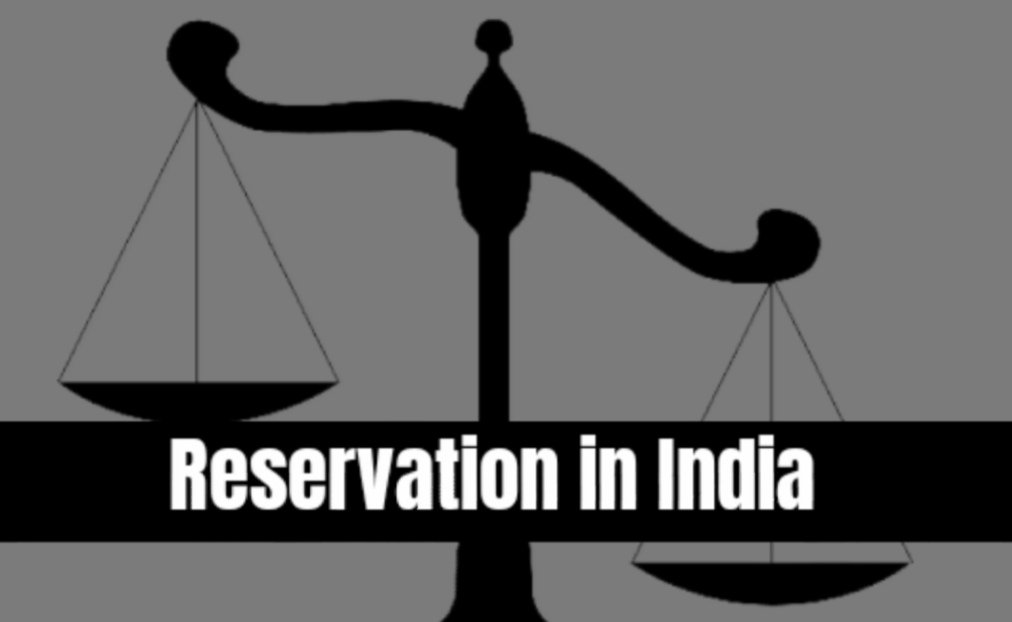Reservation in the Indian education system has been a topic of debate for decades. Is it a sign of Discrimination or Equality? On the one hand, it is argued that it is a necessary step towards achieving equality and social justice, while on the other hand, it is viewed as discrimination against the non-reserved category students. In this blog, we will explore both sides of the argument to determine whether the reservation is a sign of equality or discrimination against Indian college students.
What is Reservation in India?
Reservation is a policy implemented by the Indian government to provide opportunities for historically disadvantaged communities such as Scheduled Castes, Scheduled Tribes, and Other Backward Classes. It was introduced to provide these communities with access to education and employment opportunities, which were previously denied to them due to social and economic reasons.
The reservation system in India is based on the principle of affirmative action. Under this system, a certain percentage of seats in educational institutions and government jobs are reserved for these communities. Currently, the reservation quota in India is 50%, with 15% for Scheduled Castes, 7.5% for Scheduled Tribes, and 27% for Other Backward Classes.
Arguments for Reservation as a Sign of Equality
Addressing Historical Injustice: Reservation aims to address the historical injustice and discrimination faced by marginalized communities in India. These communities were denied education and employment opportunities for centuries, which resulted in their economic and social marginalization. Reservation provides these communities with a level playing field and allows them to access education and employment opportunities that were previously denied to them.
Promoting Diversity: Reservation promotes diversity in educational institutions and workplaces. It ensures that students and employees from different backgrounds are represented, which can lead to a better understanding and appreciation of different cultures and perspectives.
Ensuring Social Justice: Reservation is a way to ensure social justice and equal opportunities for all. It helps to bridge the gap between the privileged and the marginalized communities and promotes a more inclusive society.
Arguments Against Reservation as a Sign of Discrimination
Merit-Based Admissions: Reservation policies lead to a compromise on merit-based admissions, which can lead to the selection of less qualified candidates. This can be detrimental to the quality of education and the overall performance of educational institutions.
Unfair Advantage: Reservation policies provide an unfair advantage to the reserved category students, which is a form of discrimination against non-reserved category students. It is argued that merit should be the sole criteria for admission and employment opportunities, rather than the social and economic background.
Caste-Based Reservation: Reservation based on caste reinforces the caste system, which is a form of discrimination in itself. It is argued that the reservation should be based on economic criteria rather than caste, as it would benefit the economically weaker sections of all communities, including the marginalized communities.
Conclusion
In conclusion, reservation in the Indian education system is a complex issue, with arguments on both sides. While reservation aims to address historical injustice and promote social justice, it also leads to compromise on merit-based admissions and provides an unfair advantage to reserved category students. A better solution could be to implement economic criteria-based reservation, which would benefit the economically weaker sections of all communities. However, it is important to remember that reservation is a temporary measure and should not be seen as a permanent solution to address the inequalities in Indian society. Ultimately, the goal should be to create a society where everyone has equal access to education and employment opportunities, regardless of their social and economic background.
Join our community https://docs.google.com/forms/d/e/1FAIpQLScPkN401VIeid50NOHG4-Qi_q4BpHFWX0eYshOh57-c8aUUQw/viewform?usp=sf_link for more such daily updates related to Delhi University.

